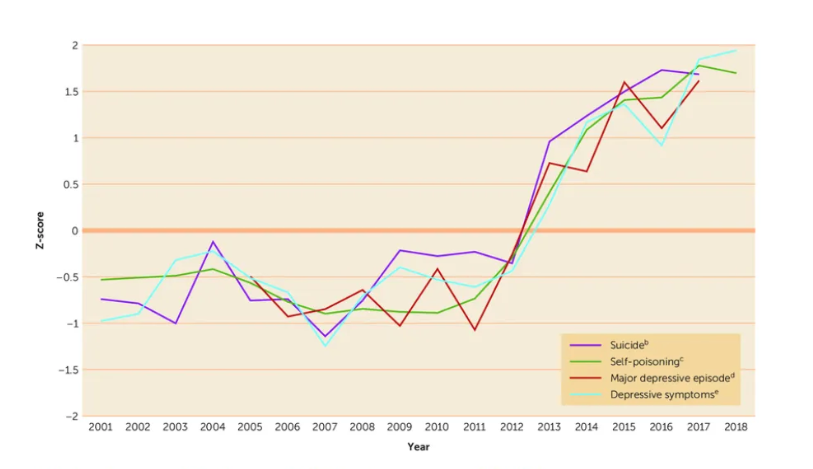Trends in mental health problems among US women and girls, 2001 to 2018. It's so obvious that something changed, and we all know what it is. 

This graph is from @Noahpinion's article on the subject. I agree that "It's the phones" should be our default hypothesis. Though it's not the phones per se; it's the apps.
noahpinion.substack.com/p/honestly-its…
noahpinion.substack.com/p/honestly-its…
The distinction between phones and apps is an important one. I think if Steve Jobs were still alive, he'd do something about this. He'd see this as the app makers exploiting his excellent hardware to ruin people's lives for money. And he wouldn't like that.
David Petersen (@typesfaster) posted this graph of the percentage of teens who meet their friends in person almost every day. If you crop and flip it, it's much the same shape as the graph of mental health problems. 



• • •
Missing some Tweet in this thread? You can try to
force a refresh




